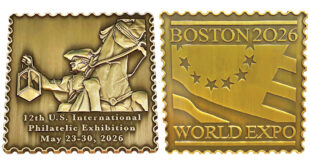It’s a creamy substance bottled up and sold in health food stores alongside bold claims it can boost your sex drive and fight ageing.
But research now suggests royal jelly – secreted by honey bees to feed their queen – could also be used to combat symptoms of the menopause.
Scientists found taking ‘bee milk’ daily was four times more effective at combating hot flushes as placebos in women going through ‘the change’.
It comes after a bombshell study last week linked HRT – often dished out to alleviate symptoms in menopausal women – to breast cancer.
However, experts have today issued caution over the findings, warning it is only a small study and more trials are needed.
But research now suggests royal jelly – secreted by honey bees to feed their queen – could also be used to combat symptoms of the menopause. Participants took 1000mg capsules
Half of the 200 women in the study were given 1000mg of royal jelly capsules to take daily. The others received a placebo.
Each participant was asked to keep up the same routine for eight weeks, to compare the effects of royal jelly against sugar pills.
All were aged between 45 and 60 – the average age that the menopause begins is 51, according to the NHS.
Hormozgan University of Medical Sciences experts quizzed them on the severity of their symptoms, giving them a score of between zero and 44.
This was based on 11 common side effects, including hot flushes, irritability, bladder problems and vaginal dryness.
On average, the women scored 32 before beginning the two-month trial, published in Complementary Therapies in Clinical Practice.
Volunteers taking the royal jelly pills saw their symptoms almost halve in severity, with their score dropping to 19 at the end of the study.
In comparison, there was barely any difference for women taking the placebo. Their score dropped by just three points, on average.
The lack of effect from the sugar pills led five women to drop out. Three others were ruled out because they forgot take the royal jelly every day.
The team wrote: ‘The findings showed daily consumption of oral royal jelly (1000 mg) for eight weeks was effective in alleviating the menopausal symptoms.
‘It can be concluded that royal jelly might be considered as a complementary treatment for menopausal symptoms.’ No side effects were noted.
But the team led by Seyedeh Nazanin Sharif said further research is needed to ‘confirm the effects of royal jelly’ on menopausal symptoms.
The study wasn’t listed as being funded by the industry. It used royal jelly pills made by the Canada-based Natural Life Company.
Royal jelly can be bought online and on the high street as well as high-end stores, with some firms offering 60 capsules for around £15 ($18).
Women weren’t allowed to take part in the study if they were already taking HRT – the most common way of alleviating the effects of the menopause.
The researchers admitted it is ‘not exactly clear how royal jelly improves menopausal symptoms’.
However, they speculate that it may stimulate the production of testosterone, which could help the body create oestrogen.
They also say the substance contains compounds similar to the hormone itself, such as its main component – 10-hydroxy-2-decenoic acid.
Haitham Hamoda, consultant gynaecologist and chair of the British Menopause Society, issued caution over the findings.
He said: ‘This is a small study of only 200 woman and more research will be needed to replicate these findings before royal jelly can be considered a clinically proven treatment for menopausal symptoms.
‘Women who have menopausal symptoms which they would like to help manage – such as hot flushes, sleep problems or depression – should see her healthcare professional who can discuss a number of suitable treatments, so she can make a decision about the best choice for her.
‘These can include medical and non-medical based treatments, depending on the symptom and medical history of the woman.’
The research comes after a major Oxford University study last week, published in The Lancet, found HRT may raise the risk of breast cancer by a third.
It analysed results from nearly 60 trials of 500,000 women, suggesting one in 20 cases of breast cancer – around 3,000 a year in the UK – are caused by HRT.
Doctors hit out at the ‘irresponsible’ study and urged women to keep taking the pills, as the NHS watchdog announced it would review the evidence.
Debate over the safety of HRT has raged since 2002, when its link to breast cancer first emerged – but experts say obesity is still a bigger risk factor.
HRT drugs, administered as patches, pills or gels, provide the oestrogen that the body stops producing during the menopause.
Several hundred thousand British women take the treatment in gels, patches or pills – but a shortage has left some scrambling to get supplies.
All high street pharmacies are being affected by the shortages, which has had a ‘domino effect’ causing supplies of alternatives to run low.
Menopause is defined as the changes a woman goes through just before and after she stops her periods and is no longer able to get pregnant naturally.
Some women go through this time with few, if any, symptoms. But one in four will suffer severely with hot flushes among other complaints.
The menopause happens when your ovaries stop producing as much of the hormone oestrogen and no longer release an egg each month.
Source link


